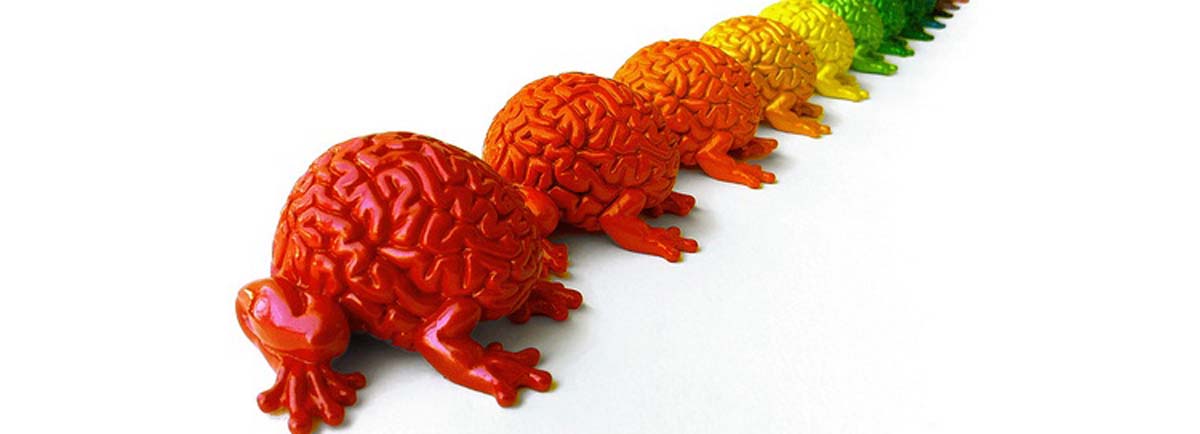In 1973, the famous neurologist Oliver Sacks published his memoir Awakenings, later made into a movie of the same name starring Robin Williams. In the book, Dr. Sacks described his experiences administering the then-new medication L-dopa to a group of catatonic patients who had survived an 1917-1918 epidemic of a disease known as encephalitis lethargica.

For over 40 years, these unfortunates had been unable to speak, to move out of their chairs, to express emotion, or to respond to human touch. Sacks, who had previously (in real life) extracted the neurochemical L-dopa from earthworm brains, decided to try L-dopa treatment as a remedy for their decades-long paralysis.
In the movie, one patient begins to communicate by operating a Ouija board. This patient and others regain their ability to speak, to move, to enjoy a trip to the Boardwalk or a picnic in the park, and to fall in love. One by one, however, their newly rediscovered powers of movement degenerate into tics and spasms, until in the end each patient is once again unable to move, or speak, or express emotion.
What had happened (in real life) to the patients of the distinguished Dr. Sacks is that the L-dopa treatment had essentially "burned out" neural circuits in the brain. While L-dopa in the treatment of Parkinson's disease does not cause dramatic effects of these tragic dimensions, treatment with L-dopa (sold in some countries under the trade name Artane) is severely problematic. L-dopa side effects include:
- Hypersexuality, with loss of inhibitions and sense of social propriety.
- Anxiety, often with paranoid overtones, which may be directed at family and caregivers.
- Nausea and constipation, which are often severe.
- Insomnia alternating with vivid dreams.
- "Sundowning," loss of sense of time, getting up at sundown as if it were early morning.
- Hallucinations, both visual and auditory.
After several weeks to several months of taking the drug, side effects may include:
- Severe deterioration of symptoms as each dose of the drug wears off.
- Dyskinesia, tics, and spasms, mainly in the upper body.
- Serotonin depletion, leading to depression, and worsening constipation.
- Freezing during movement, becoming catatonic in the middle of a stride while walking, becoming voiceless in the middle of a sentence, getting stuck in a chair.
Just a few weeks of taking L-dopa can result in dopamine dysregulation syndrome, in which patients crave the medication and give themselves extra doses. Often this self-medication is accompanied by sexual addiction, gambling addiction, food addiction, or kleptomania that is inconsistent with the Parkinson's patient's character and lifestyle.
Typically, Parkinson's patients find that the benefits of L-dopa are short-lived and its side effects are serious. The Ayurvedic herb Mucuna pruriens, however, offers a naturally occuring L-dopa in small doses that don't cause these problems.
Mucuna Pruriens As An L-dopa Alternative
Mucuna pruriens is a tropical climbing vine common in India (where it is raised as a crop for use in herbal medicines), the West Indies, and Africa. Growing up to 15 meters (50 feet) long, the mature vine is covered with fine hairs that cause itching in animals that otherwise might eat it, hence the common name cow itch vine. The plant is known as atmagupta or kiwonch in Ayurvedic medicine.

Ayurvedic herbalists noticed over 5,000 years ago that the beans of the cow itch vine stimulate male sexual desire. This is because they contain up to 3% dopamine, naturally occurring in the bean. (Some cultivars of the vine grown in India have been bred to produce a much higher dopamine content.) This content of L-dopa has led serious research scientists, such as neurologist Dr. Bala V. Manyam of the Scott & White Clinic in Texas, to investigate the uses of cow itch vine in treating Parkinson's disease.
Here is what Dr. Manyam and colleagues have discovered about the experimental preparation made from the herb:
- Mucuna pruriens protects the energy-making mitochondria in the substantia nigra of the hippocampus of the brain so that these cells continue making dopamine, serotonin, and norepinephrine.
- The herb protects brain cells from DNA damage when it is applied with L-dopa, that is, it can be used with L-dopa or as a stand-alone treatment.
- Mucuna pruriens contains both coenzyme Q10 (CoQ-10) and antioxidant polyphenols structurally similar to some of the polyphenols found in green tea.
A typical dose of this herb provides about 3% of the L-dopa found in a standard dose of the prescription drug artane. While the herb provides a tiny amount of this needed neurotransmitter, its primary benefits are as an antioxidant.
But does Mucuna pruriens really work? We only have one clinical study involving just eight patients on which to base our conclusions. When researchers at the National Hospital for Neurology and Neurosurgery in London tested an ounce a day dose of the herb in
However, for Parkinson's patients who are not yet on L-dopa, Mucuna pruriens may offer an important way to prevent the progression of the disease. Anything that delays the necessity of taking L-dopa delays its inevitable side effects, and enhances quality of life at low cost, naturally.
- Katzenschlager R, Evans A, Manson A, Patsalos PN, Ratnaraj N, Watt H, Timmermann L, Van der Giessen R, Lees AJ. Mucuna pruriens in Parkinson's disease: a double blind clinical and pharmacological study. J Neurol Neurosurg Psychiatry. 2004 Dec. 75(12):1672-7. PMID: 15548480 [PubMed - indexed for MEDLINE]
- Manyam BV, Dhanasekaran M, Hare TA. Neuroprotective effects of the antiparkinson drug Mucuna pruriens. Phytother Res. 2004 Sep. 18(9):706-12.

